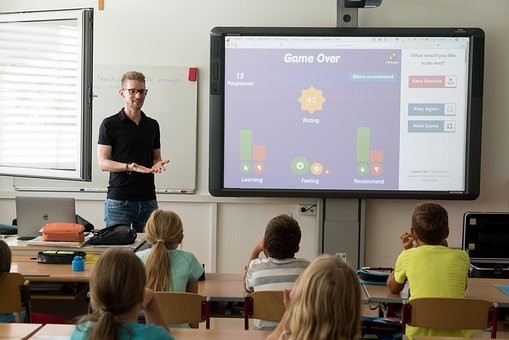
We live in a global and multicultural world. Even though this is our reality, we need to create cross-cultural awareness. This means that we need to think about the way we interact with people from different cultures. It is often the case that we become very comfortable with our surroundings and routine. We may never think about the way different cultures see or experience the world. This can affect our ability to communicate well in a cross-cultural situation. There are many ways that we can increase our cross-cultural awareness and become better communicators. We can do this by being considerate of our communication styles in several practical ways. We can focus on our interpersonal skills. We can try to understand different cultures and we can improve our listening skills. In this blog, we will discuss some of the most pertinent points related to this topic. We will discuss how through 5 simple and practical steps we can develop our cross-cultural awareness to be better global citizens.
Step One: Understanding the Differences between Culture and Tradition

We can use the terms tradition and culture interchangeable, but there are some differences. We may have a shared culture but different traditions or shared traditions, but different cultures. The concept of culture is dynamic much like so many other important things in this world that make us the complex creatures that we are. Even the definition of culture itself is debatable. The website Difference Between defines tradition as beliefs, behaviours, rituals and customs. But culture provides the reason for why we do what we do. In this sense, culture can be a little more far-reaching. Sometimes it’s hard to understand all the things that are important to the people that we encounter in our lives. We may not understand why certain customs or traditions are important. But we can be proactive and open-minded and ask people to try to help us to understand. We can ask questions about different cultures and traditions and hopefully develop friendships as we do.
Step Two: Understanding the Benefits of Cross-Cultural awareness

There are many benefits to cross-cultural awareness which can help people of all different age groups. When we are open and expose ourselves to different cultures, we can find ourselves greatly enriched. Through cross-cultural awareness, we can learn languages. Perhaps we can enjoy different food. We can celebrate different festivals. We can get to travel to new countries or cities. And, through all these ways, we can build new friendships.
If we open ourselves up to these differences, we might become aware of any prejudices or stereotypes that we have. This provides us with a foundation for self-improvement and education.
Step Three: Self-awareness and self-motivation
An important factor in understanding cross-cultural awareness is understanding the way we communicate. By focusing on the way we express ourselves, we can become aware of any communication limitations that we have. We can also allow this to motivate us to learn about other people, other cultures and how they communicate too. Sometimes, certain phrases or hand gestures can seem abrupt or rude in one culture, but fine and expected in another. This is one of the main benefits of cross-cultural awareness. We can understand how not to offend people from other cultures. Our motivation for wanting to communicate better may be for travel, work or study in another country or friendship. Often we already have ideas about what is acceptable but we may find differences we didn’t expect. We may also learn about our own culture and communication style. Reiche (2012) comments, “Understanding and becoming aware of one’s own cultural values, beliefs, attitudes and judgments become central when we have to interact with people from different cultural backgrounds.” It may be strange to step outside of our comfort zone and sometimes we do not realise that our own beliefs or customs may be limiting. Simple things like the way we eat, or our etiquette can suddenly seem very different when we view them through another person’s eyes or culture. We often already have these ideas of cultural norms; the “dos” and “don’ts” that we think are perfectly normal. Yet to understand diverse cultures we need to be open-minded and have self-motivation. This can help develop our curiosity or desire to accept and ask questions about why things are different. Once we are aware of these differences and challenges, we can start to be effective and have some truly interesting interactions.
Step Four: Developing Interpersonal Skills

The website Skills You Needs defines interpersonal skills as the skills that you need in everyday life to succeed. We use these skills in every aspect of our daily communication. Yet sometimes we must make an effort to truly hear and understand the world from a different perspective. These are skills that we can advance and use in cross-cultural environments. Developing our interpersonal skills can help us to excel in every aspect of our working and social lives. There is a strong correlation between success and people with strong interpersonal skills. The term “interpersonal skills” falls into the same categories as people skills, social skills, and soft skills. All these come into play when we talk about things like emotional intelligence and communication skills. Understanding our own emotions and acting in accordance is a vital skill for people of all ages. And just like with emotional intelligence, we continue to advance our communication skills in all contexts. Other skills that we use every day are teamwork and negotiation, and problem-solving. As you can imagine, these are vital skills for young and old. And, finally, good development of interpersonal skills, can help with conflict resolution. We can pinpoint issues that may arise in the workplace and work out how to avoid these. Lastly, we can develop our decision-making skills by developing our interpersonal skills (Skills You Need, N, D). All these skills are greatly developed in a cross-cultural context.
Step Five: Improving Listening Skills

There are many distinct types of listening skills that we use every day. The type of listening skill that we use depends on the type of information that we seek. Sometimes the listening skills that we can use are passive, we dip in and out of a conversation or we listen to the radio as background noise. These are forms of passive listening and we usually don’t focus all our attention in these situations. But when we are listening in cross-cultural situations we can use “active listening skills.” We often use active listening skills in business environments or when we are trying to understand other people’s points of view. This might for example be in a multicultural context. In these situations, we focus our attention on trying to understand what is happening and this is transactional. To be an active listener, you must check that you are receiving the message how the speaker is intending it to be “sent.” When there is a speaker and an active listener both parties have a role. The speaker sends the message, and the listener sends signals back to the speaker. The listener needs to engage by giving verbal or non-verbal indications which let the speaker know that the message is clear. This type of communication is even more important in cross-cultural situations as we all have different ways of communicating. There may be language barriers or even social barriers which can help or hinder communication which makes our listening skills even more important.
Classroom teaching strategies

Some of the simplest ways to ensure open-mindedness and cross-cultural awareness are to bring them into the classroom. Below, we suggest a few ways that we can do this.
Inclusivity and representation
Inclusivity and representation are so important in our classroom contexts. If we work with diverse and multicultural students, we can make sure that we give a nod to this through the materials and activities that we choose. We can choose or create materials that contain people who represent them and their lived experiences. This can help give students a voice and let them share parts of their authentic selves and their culture. This can also help develop our learners’ listening skills as they try to listen and understand what it is like to live and share different cultures. Even in environments where we do not have lots of different cultures present in our classrooms, we can still develop tolerance, and understanding through representation. We can make sure that students see images of other students who look like them or just different people from around the world.
Discussions
Discussions are a great way to allow students to ask questions about each other and other cultures. We can encourage students to openly discuss other people’s cultures and traditions in a safe environment in our classrooms. Here students can explore the differences and similarities while developing their active listening skills.
Show and tell
“Show and tell” days are occasions when students can bring different things into the class and do a presentation about these things. These are occasions when students can bring a part of their culture into school or the classroom and talk about why it’s important to them. Teachers can encourage students to bring in things from diverse cultures or cross-cultural interactions that they have had. Activities like these can be really important and affirming for many children. They provide them with the opportunity to be proud and different in a respectful environment and open environment.
Pen pals
We can develop cross-cultural awareness by encouraging our schools to make connections with other schools from around the world. This can include a different region in our country as this is also an effective way of encouraging this type of communication. Students can partake in letter writing through a pen-pal scheme. What’s more, students can develop their reading and writing skills through these activities.
Recognition days or Celebration days
A wonderful way to foster cross-cultural awareness is through recognition or celebration days. These can be days where we get to celebrate and research the festivals of different cultures around the world. We can spend time learning about the origins of a tradition or celebrations that are important in other people’s cultures. Students can share their lived experiences and can practise their cultural literacy. Students get to practise their research skills as they try to understand the origins of these traditions and customs.
In this blog, we have discussed the importance of cross-cultural communication and how we can develop this in our classrooms. Can you think of any other ways or activities?

References:
Interpersonal Skills. Available from https://www.skillsyouneed.com/interpersonal-skills.html
Difference between culture and tradition, available from http://www.differencebetween.net/miscellaneous/difference-between-culture-and-tradition/#ixzz7SuuL4ogW








































